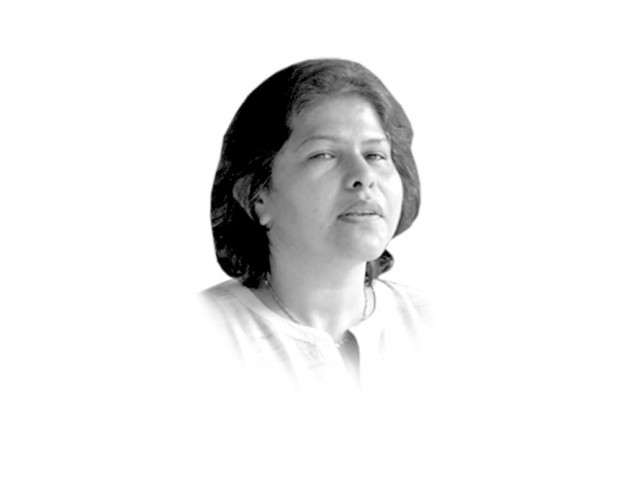Goodbye to a son of the soil
Those who suspect minorities loyalty towards state, Cecil was an officer of PAF first & last, sympathetic to state.

His eldest daughter and I were friends and their house became a second home for me. Between Uncle Cecil and Aunty Iris, the residence of the principal of St Anthony’s School in Lahore, was a welcome place for their children’s friend and many others. As he turned from a fighter pilot to an educationist, he applied the same zeal and fervour to ensuring improvement in educational standards and in keeping the institution that he was heading, alive and vibrant. In the last years of his life, he was in charge of St Mary’s School in Rawalpindi. These were the years after he lost his wife, but not his charming smile or the resilience with which he fought on. In fact, he did not give in or give up until he breathed his last. The deadly lung cancer that he suffered from did not slow him down from attending to his duties as an educationist, a leader of the Christian community and one of the many leaders of Pakistan.
On several occasions, we had this interesting conversation about the state and fate of the Christian community in Pakistan. Contrary to those who tend to always suspect the minorities and their loyalty towards the state, Cecil Chaudhry was not the one to do unnecessary finger-pointing. He was an officer of the Pakistan Air Force first and last, and thus sympathetic to the state. Even though successive governments had been suspicious of the minorities, and there was an unwritten policy that made promotion of officers from religious minorities to higher ranks in both the civil and military bureaucracy, difficult, he never complained about it.
Instead, he would review the performance of the Christian leadership and their role in not planning any improvement in the conditions of the socioeconomically challenged Christians. He talked about the need for greater political integration between the Christian community in Pakistan with the majority Muslim community. In his view, there was no logic in having separate electorates after 1947 as the various ethnic communities existed on one another’s margins without ever merging in terms of their political interests. Unless a Christian contested on a general seat, or a Muslim candidate went to the Christians to ask for votes, the two would not understand or appreciate each other’s significance. Instead of keeping the two communities separate, it was necessary to make them relevant for each other.
Uncle Cecil reminds me of all those great people who have owned this land despite the unfair manner in which the state treated them. While the national security realists may continue to harp endlessly about a conspiracy to harm this country, the greatest threat comes from within, in the form of drawing a line between people on the basis of their caste, colour and creed, and considering some as less of Pakistanis than others. The Christian community, in particular, has made efforts to gel into the local milieu. A lot of them have even adopted local rather than anglicised names. Now, they should not be forced to abandon their faith as well.
Although Cecil Chaudhry, like Shahbaz Bhatti and other Christian Pakistani leaders, did not complain publicly, it was certainly a torture for many of them to see their community being ostracised in the name of religious honour. What a pity that a man, who took to the skies during the 1965 war to protect the homeland, could only watch helplessly as it became fashionable to hang Christians and others on the altar of greed of vested interests.
However, Cecil Chaudhry kept struggling for inter-communal harmony and making the case that he could be both a proud Pakistani and a Christian at the same time. His family is as Pakistani and Lahori as it gets. It is time to recognise his efforts with more than just a medal.
Someone suggested renaming a road after him. I would say, let us be brave and generous and have mercy on all the poor Christians victimised by vested interests in the name of religion.
Published in The Express Tribune, April 22nd, 2012.













COMMENTS
Comments are moderated and generally will be posted if they are on-topic and not abusive.
For more information, please see our Comments FAQ